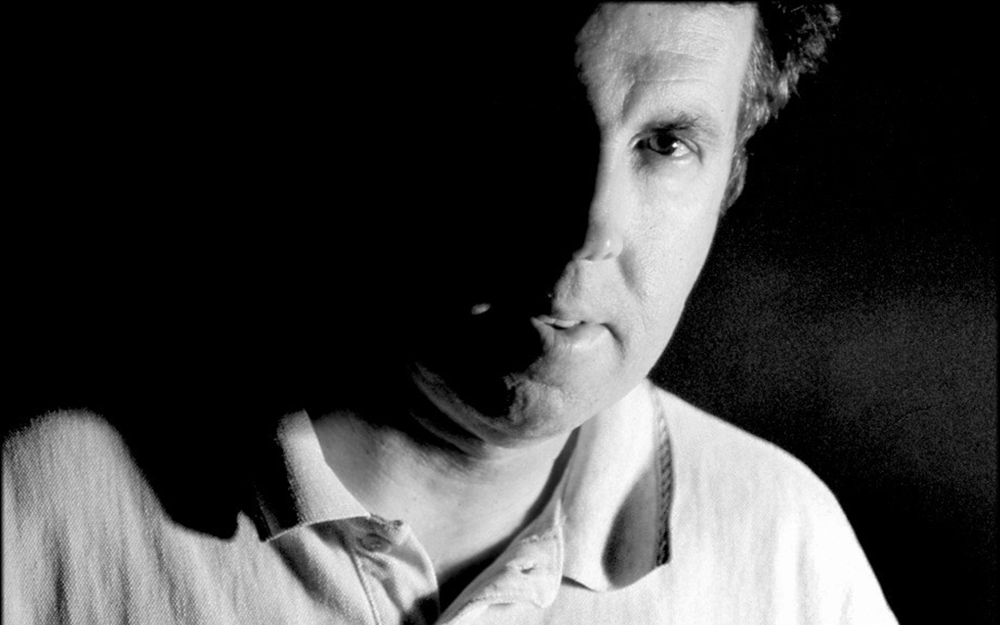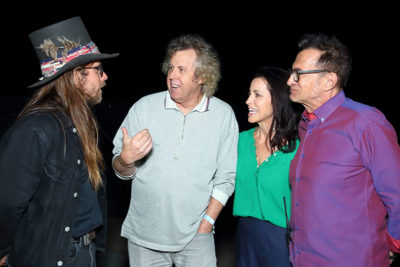
Bruce Fessier has been the voice of the Southern California desert entertainment scene for over 40 years. On Sunday, June 2nd, 2019, he will receive the ‘Lifetime Achievement Award for Music Journalism’ at the 2019 Coachella Valley Music Awards at Hotel Zoso in Palms Springs, California. As far as the arts go in the Coachella Valley, Bruce has been our point of contact both before and after any event or performance. If you wanted to know what was happening at any given time, Bruce was your man. If you wanted to know how something turned out or wanted a straight-forward review, you read about it in The Desert Sun and in the byline it read, ‘by Bruce Fessier’.
I believe I speak for all writers at Coachella Valley Weekly when I say that Bruce is our mentor. He remained as impartial as a writer could be while staying assertive and conveying in his words what he wanted to administer to his readers. Bruce was, and is, a true journalist.
We connected with Bruce as he prepared himself for his last column and The Desert Sun open house in honor of his retirement that includes a live interview by New York Times best-selling author and Coachella Valley local Tod Goldberg. All proceeds will be donated to the Bruce Fessier Journalism Internship Fund at College of the Desert. Contributions to the fund are tax-deductible, and all contributions go directly to the student interns. To donate online, please go to codfoundation.org/donate/BruceFessier. You may also send a check payable to College of the Desert Foundation. In the memo line, please write “Bruce Fessier Fund”. Send it to College of the Desert Foundation, 43-500 Monterey Ave., Palm Desert, CA 92260. Contributions to this fund will enable College of the Desert students to participate in paid internships at The Desert Sun. These internships will allow them to gain experience and expand on skills associated with arts journalism and digital design.
CVW: You must be experiencing a lot with your retirement on the horizon. What are your thoughts and feelings about receiving the Lifetime Achievement Award?
Fessier: “This lifetime achievement award means a great deal to me, mainly because I greatly identify with so many of the ‘lifers’ in the desert music scene. I received my journalism education in Los Angeles and San Francisco, but I’ve been coming to the desert all my life. My first family vacation was to the 29 Palms Inn when I was less than a month old. My aunt and uncle joined the Institute of Mentalphysics and built a house in Joshua Tree in 1958. I lived in that house after they died and I manage it today as a rental property. Attending the institute, reading my uncle’s metaphysical books and taking magic mushrooms in what was then Joshua Tree National Monument shaped me as much as learning the history of 20th century pop culture from several historic music men who lived in the low desert, like Irving Mills, who managed Duke Ellington and had a music publishing empire, and Howie Richmond, who had another publishing empire and founded the Songwriters Hall of Fame. I’ve always felt it’s better to be bold than to be polished, and I feel like the musicians I admire most from this desert, like Mario Lalli, Josh Homme and the late James Gurley (a lead guitarist for Janis Joplin) felt the same way. In my early years, I didn’t have an editor who reined me in. My editor believed in letting me fail, so I frequently embarrassed myself. But I also grew creatively and that enabled me to put my own unique stamp on this community. From the early-1980s through the mid-2010s, I feel like I nurtured the development of the local entertainment industry with the unique voice of my column. Lately, with the newspaper cutbacks and the advent of digital-first, metrics-driven journalism, I have felt more responsible for generating big page views to help sustain the reporters doing important investigative journalism. I’m not the steward of the local music scene I once was. But, after 40 years in the desert, I’ve been able to build a loyal audience and I can still bring a lot of attention to local artists by being bold and adventurous, like the desert rockers. My last Desert Sun feature story was on ancient giants who once roamed the earth and it found a large online audience, which was kind of weird, but it satisfied our digital strategists and my main source. So, being bold and adventurous has become identified with desert culture. Sinatra might have started that when he did things “his way.” But Mario and Josh and Mikey Reyes and Ocho Ojos have perpetuated that attitude, and I’m proud to have ridden that train as well to help people recognize that the drive for uniqueness is a trait of desert culture.”
CVW: What do you feel has been the most important quality you possess that has brought you this far in journalism?

Fessier: “Two things, mainly: My training as a news reporter and my open mind and passion for all kinds of music. I’ve always felt I was a serious journalist first and a music reviewer and feature writer second. I have developed ‘a nose for news’ for what is distinctive and notable, and I have the skills to write subjective ‘newsy reviews’ as a former entertainment editor for USA Today called them. I grew up in a musical home. Both of my parents were music majors for a while at Whittier College, and they made me take lessons in piano, trumpet and trombone. But I never developed a real passion for music until I went to San Francisco State University and took a class in ‘Rock As Literature’ and became exposed to the Bay Area music scene. An auditorium called Winterland was like my church and I became intoxicated by so many different kinds of music in the Bay Area — from Grateful Dead and Peter Frampton to Muddy Waters and Merle Haggard, and Jazz, Opera, Dixieland, Bluegrass… I took some guitar lessons after moving to the Inland Empire for a job and played in a few little hootenanny parties. There were bluegrass musicians and gospel choir members, and I got to experience the almost psychic-like sensation of collective improvisation. I was so immersed in the blues, I used to make up blues verses on the spot and it was the best rush ever. When I moved to Palm Springs, the affluence was so foreign to me, I used to drive around with a tape of Leadbelly’s Bourgeois Blues in my cassette deck. Then, I started sitting at the knee of Irving Mills and Howie Richmond and they brought me into the world I had been enjoying vicariously. Irving launched an era by giving Ellington the title for It Don’t Mean A Thing If It Ain’t Got That Swing. Howie actually published The Bourgeois Blues. Alan Lomax got Leadbelly out of prison, but he took ownership of his songs as a folk music collector. Howie made sure Leadbelly’s widow got his royalties. So, I learned to appreciate people of all ilks. One of my proudest associations was with the late Lalo Guerrero, known as the father of Chicano music. In 1984, Lalo and my wife were performing a benefit at what is now the Riviera Resort. I was talking with him back stage and he asked me why I never wrote about him. I used to mention him singing at Las Casuelas Nuevas in my column, but I never did a big profile on him. So, I told him I just didn’t know enough about his kind of music to write an intelligent story. And he said, ‘Oh, I understand’. And I felt like such an asshole. I started studying up on his music and I went to see him at a church in East L.A. as part of the Los Angeles Olympic Arts Festival. And suddenly, this guy, who dressed in a suit and tie playing for mostly white folks at Las Casuelas, was one of the coolest guys ever, wearing a fringe leather coat and just swinging music in Spanish. After that, I wrote about him frequently and, when the city of Cathedral City named a street in his honor, I was the only Anglo he asked to introduce him at the street dedication. It was one of the greatest honors of my life and it taught me that I always have to expand my horizons. I wish I could continue keeping up with new trends. It’s become almost impossible. But my desire is to always try to appreciate new music, even as it comes from around the world to be showcased in our backyard at Coachella.”
CVW: You’ve made inclinations that you will do other things after you transition. What do you have up your sleeve for the rest of 2019 and beyond?
Fessier: “I wish I could tell you definitively. My last day is June 3rd. The next day, my wife is directing a youth show at the CVRep Playhouse, which I’m very excited about because she’s selected some meaningful, disparate works and I got to help tie them together by suggesting music for it. On June 5th, I’m getting a complicated root canal. June 6th is my 66th birthday, June 7th is my son’s birthday and June 14th is my wife’s birthday. I don’t know what we’re doing then, but I know we won’t be doing anything for Father’s Day. My main priority this year is to write some books related to Coachella Valley music. I’ve had three offers for collaborations, but I don’t have any contracts signed, so I don’t want to say anything prematurely. I plan to start a website to be able to continue covering local arts and culture on a more sporadic basis. I’ve been asked to do two different radio shows. I haven’t told anybody, but I think I’ll do a monthly or bi-weekly radio show for KCOD, called Palm Springs Backwards and Forwards, and then post it on my website. NBC Palm Springs has asked me to do some local TV specials and I might do that once I get my priorities figured out. I also have to get my blood pressure down. I can’t keep going at the pace I’ve been keeping for the past 40 years.”
Here’s to 40 more years of Bruce Fessier in any capacity!








































